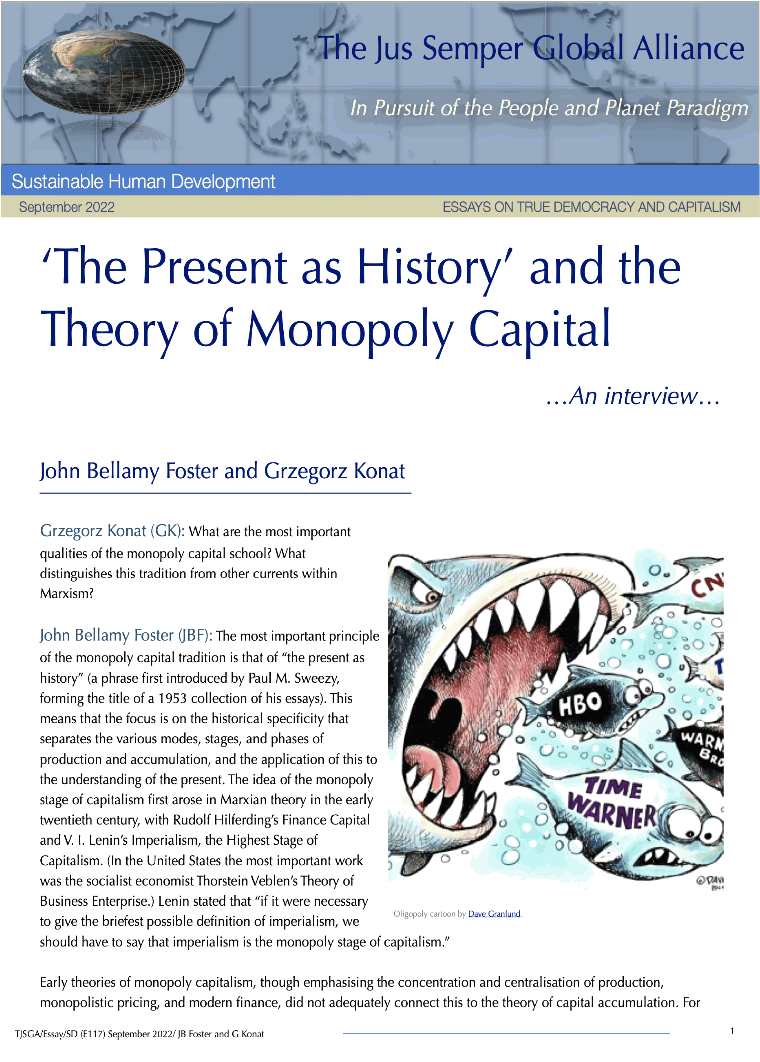…An interview… John Bellamy Foster and Grzegorz Kona Grzegorz Konat (GK): What are the most important qualities of the monopoly capital school? What distinguishes this tradition from other currents within Marxism? John Bellamy Foster (JBF): The most important principle of the monopoly capital tradition is that of “the present as history” (a phrase first introduced by Paul M. Sweezy, forming the title of a 1953 collection of his essays). This means that the focus is on the historical specificity that separates the various modes, stages, and phases of production and accumulation, and the application of this to the understanding of the present. The idea of the monopoly stage of capitalism first arose in Marxian theory in the early twentieth century, with Rudolf Hilferding’s Finance Capital and V. I. Lenin’s Imperialism, the Highest Stage of Capitalism. (In the United States the most important work was the socialist economist Thorstein Veblen’s Theory of Business Enterprise.) Lenin stated that “if it were necessary to give the briefest possible definition of imperialism, we.should have to say that imperialism is the monopoly stage of capitalism.”
For a full read of this brief, click here or on the picture to download the pdf file.
|

- © The Jus Semper Global Alliance
| Home |  | Resources |  | Economic Data |  | ‘The Present as History’ and the Theory of Monopoly Capital |


